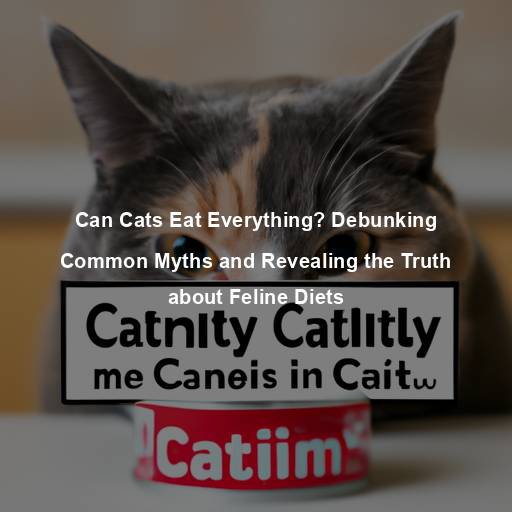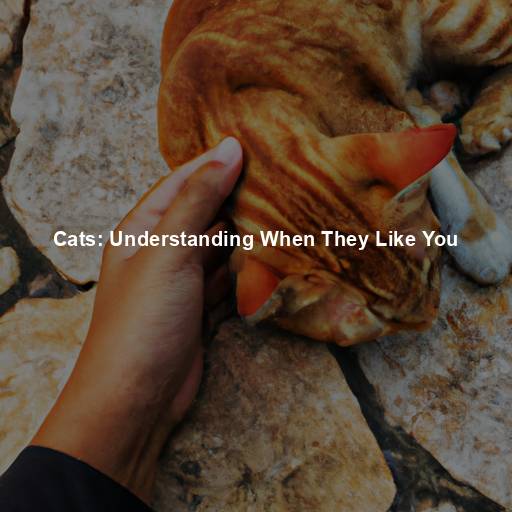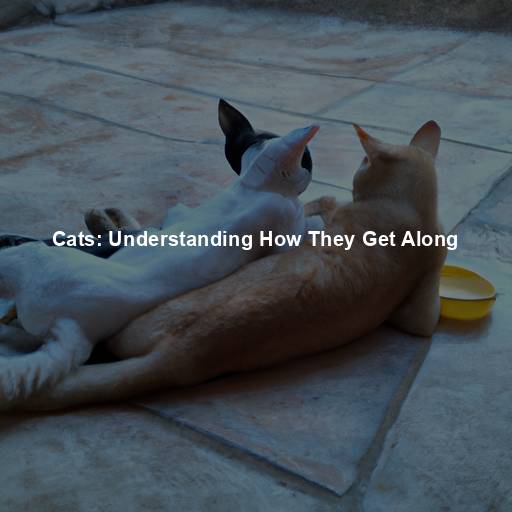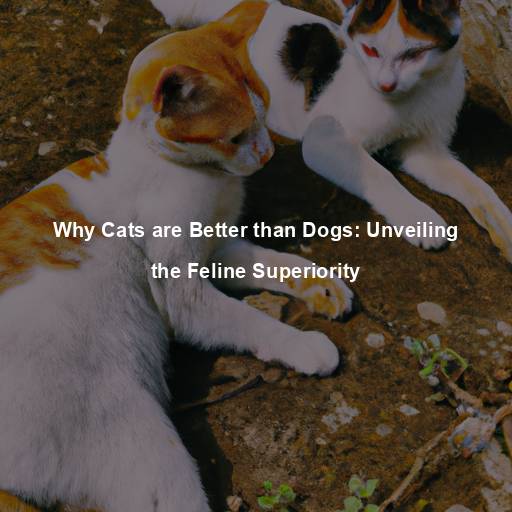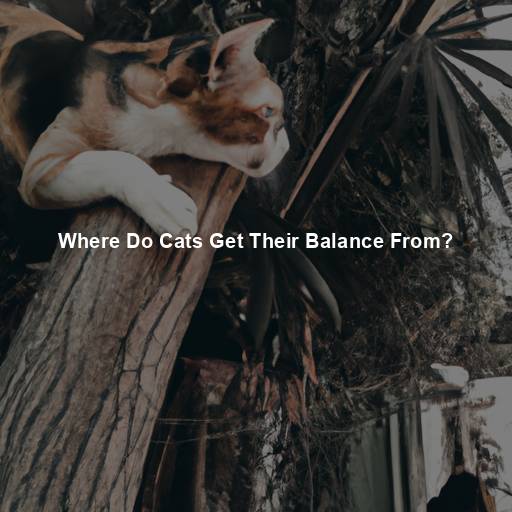Can Cats Eat Everything? Debunking Common Myths and Revealing the Truth about Feline Diets
Last Updated on August 4, 2023 by Evan
Contents
- 1 Understanding a Cat’s Dietary Needs
- 2 Cat-Friendly Foods: A Comprehensive Guide
- 3 Consulting Your Veterinarian: Tailoring a Diet for Your Cat
- 4 The Dangers of Feeding Cats Human Food
- 5 Safe Treats for Cats: Rewarding Them Wisely
- 5.1 Choosing Healthy and Safe Treat Options
- 5.2 Moderation is Key
- 5.3 Understanding the Role of Supplements
- 5.4 Omega-3 Fatty Acids: Promoting Healthy Skin and Coat
- 5.5 Probiotics: Supporting Digestive Health
- 5.6 Joint Supplements: Easing Joint Discomfort
- 5.7 Herbal Supplements: Exploring Natural Remedies
- 6 Special Considerations for Kittens and Senior Cats
- 7 FAQs: What Cats Can and Cannot Eat
- 7.1 What are some human foods that cats can eat?
- 7.2 Can cats eat fruits and vegetables?
- 7.3 Can cats consume dairy products?
- 7.4 Is it safe to offer cats cooked bones?
- 7.5 Can cats eat chocolate or other sweets?
- 7.6 Are there any common foods that can be toxic to cats?
- 7.7 Can cats eat raw fish?
- 7.8 Are there any other foods toxic to cats?
Understanding a Cat’s Dietary Needs
Let’s unravel the enigma that is a cat’s diet, shall we? These enigmatic creatures have perplexed us for centuries, as we try to decipher their unique nutritional needs. As responsible guardians, it’s our duty to debunk the myths and shed light on what is truly safe and healthy for our feline companions. Buckle up and join us on this thrilling journey as we explore the truth about what cats can and cannot devour!
Cat-Friendly Foods: A Comprehensive Guide
Protein-Rich Delights
When it comes to keeping our beloved feline companions healthy and nourished, choosing the right kind of food becomes a quest filled with perplexity. Cats, being natural hunters, require a protein-rich diet to truly thrive. Thankfully, there exists a plethora of cat-friendly foods that can cater to their nutritional needs, providing them with the necessary sustenance for a vibrant and energetic life. So, let’s embark on a journey through the realm of feline cuisine, discovering the safe and beneficial options that are sure to make our whiskered friends purr with delight.
- Real Meat: High-quality lean meats such as chicken, turkey, and fish (cooked and boneless) are excellent sources of protein for cats. However, make sure to remove the skin, bones, and excess fat before offering these protein-rich delights to your furry friend.
When it comes to our feline friends, eggs can be a surprising and beneficial meal addition. Bursting with essential amino acids, these nutrient powerhouses offer a much-needed protein punch to support their overall health. However, it’s crucial to ensure eggs are cooked thoroughly, leaving no room for perplexing bacterial contamination. So, why not mix things up in your cat’s diet and introduce the delectable world of cooked eggs?
- Organ Meats: Liver and other organ meats can also be included in a cat’s diet in moderation. They are rich in vitamins and minerals that contribute to overall feline health. However, excessive consumption of organ meats may lead to imbalances, so it’s best to consult your veterinarian for appropriate portions.
Fruits and Vegetables: A Limited Palette
It’s fascinating to unravel the dietary mysteries of our feline companions. Amidst the intricate tapestry of feline preferences, it is important to dispel the myth of cats being veggie aficionados. Their enigmatic digestive systems are simply not adept at processing plant matter. Yet, there are a select few fruits and vegetables that can be offered as tantalizing indulgences, adding a hint of excitement to their otherwise carnivorous palette.
Discover the amazing benefits of incorporating pumpkin into your feline friend’s diet! Packed with fiber, this wonder veggie can work wonders for your kitty’s digestive system and provide relief for pesky tummy troubles. Just remember to opt for plain, cooked, and unsweetened pumpkin and serve it in small, purr-fect portions. Enhance your cat’s health naturally with this burst of goodness!
Did you know that blueberries can be more than just a tasty treat for humans? It turns out, these little antioxidant powerhouses can also be a safe and enjoyable indulgence for our feline friends. Just be sure to give them a good wash and offer them in moderation as a special treat. Who would have thought that our furry companions could enjoy the burst of flavor and perplexity that blueberries bring?
Did you know that cats can indulge in a surprising snack from the vegetable world? Cooked carrots, with their tantalizing crunch and a hint of dietary fiber, can make for an intriguing addition to their occasional nibbling adventures. So, if you’re looking to add a dash of perplexity to your feline’s diet, why not surprise them with this burst of carrot goodness?
The Forbidden Foods: What Cats Should Avoid
As much as our feline friends can’t resist exploring the culinary world, it’s crucial to ensure their safety by knowing the foods that can pose a risk. Certain edibles, although tempting, can be downright toxic for our furry companions. Hence, it’s essential to remain vigilant in safeguarding our beloved cats from potential harm.
Indulging in the enticing sweetness of chocolate is an experience many of us cherish, but did you know that this delectable delight poses a hidden danger to our feline friends? The culprit that lurks within this cocoa-infused treasure trove is none other than theobromine, a treacherous substance capable of wreaking havoc on our beloved cats. Even a mere taste of chocolate can unleash a whirlwind of perplexing symptoms such as digestive turmoil, accelerated heartbeats, uncontrollable tremors, and may, heaven forbid, lead to a devastating outcome. It’s our responsibility as pet owners to remain vigilant and protect our furry companions from the enigmatic perils that chocolate conceals.
Did you know that onions and garlic, despite being delicious additions to our meals, can be incredibly harmful to our furry feline friends? These seemingly innocent ingredients are actually loaded with compounds that have the potential to wreak havoc on a cat’s red blood cells. It’s crucial to be aware that these detrimental effects apply to all forms of onions and garlic, whether they are raw, cooked, or even powdered. To ensure the well-being of your beloved pet, it’s best to steer clear of these ingredients altogether.
Be cautious when it comes to sharing your fruity delights with furry companions, especially when it comes to grapes and raisins. These seemingly innocent snacks may carry hidden dangers for our beloved cats, as even a tiny nibble can potentially lead to kidney failure. To ensure their well-being, it is wise to refrain from offering these treats to our feline friends and keep them out of their reach.
The Importance of Hydration
Apart from a well-balanced diet, cats require proper hydration to maintain their overall health. Providing fresh, clean water at all times is crucial for their well-being. Additionally, some cats enjoy the occasional treat of wet cat food, which can contribute to their overall fluid intake.
Consulting Your Veterinarian: Tailoring a Diet for Your Cat
Cats, fascinating creatures that they are, possess an enchanting array of individuality. Their exquisite dietary demands, which can fluctuate depending on vital components encompassing age, weight, and even underlying health complexities, should never go unnoticed. In order to ensure the optimal nourishment for your beloved feline friend, it is highly advisable to engage in a meaningful conversation with your knowledgeable veterinarian. They possess the expertise to fashion a bespoke feeding regime, encompassing specialized cat food brands that impeccably align with your kitty’s unique nutritional requisites.
Food Allergies: Unraveling the Culprits
It’s a curious twist of fate that cats, those enigmatic and inscrutable creatures, could find themselves entangled in the perplexing realm of food allergies. Yes, you read that right – just like their human counterparts, our feline friends can also be plagued by the unwelcome effects of certain ingredients lurking in their diets. To unleash the truth, common allergens like fish, dairy, beef, and wheat can turn these seemingly innocent pets into unwitting victims of immune system chaos, leaving both them and their owners yearning for answers amidst the tangled web of triggers and symptoms. It’s a phenomenon that highlights the intricate and multifaceted nature of our furry companions, leaving us to ponder the mysteries of their delicate internal workings.
When it comes to feline health, proteins play a vital role. However, it’s a perplexing fact that some protein sources such as beef, dairy, and lamb can unexpectedly trigger allergic reactions in our beloved cats. To tackle this mysterious phenomenon, it becomes crucial to embark on a journey of elimination or seek the wise counsel of a trusted veterinarian to identify and eliminate the precise culprit behind these adverse reactions.
- Grains: Contrary to popular belief, cats do not require grains in their diet. In fact, some cats may be allergic or sensitive to grains such as wheat, corn, and soy. Opting for grain-free cat food options can help alleviate symptoms in these cases.
Signs of Food Allergies in Cats
Identifying food allergies in cats can be challenging, as the symptoms may vary. Some common signs of food allergies include:
When it comes to our feline friends, even their delicate skin can fall victim to the mysterious realm of irritations. A curious combination of food allergies may unleash a world of perplexing sensations, leaving our furry companions scratching their heads (and bodies). Unruly itches, fiery redness, enigmatic rashes, and the fear-inspiring phenomenon of excessive grooming become the mysterious signs to decode. Alongside these bewildering encounters, one might bear witness to the vanishing act of fur or the enigmatic emergence of minute bumps, truly a riddle within a feline enigma.
- Gastrointestinal Distress: Digestive issues such as vomiting, diarrhea, or frequent bowel movements can be indicative of a food allergy.
Sometimes, food allergies can present themselves in unusual ways, causing perplexing respiratory symptoms such as persistent coughing, unexpected wheezing, or sudden bouts of sneezing. While these cases are rare, they can leave both individuals and medical professionals puzzled, searching for answers amidst the burst of unexpected symptoms. It is vital to remain vigilant and consult a healthcare provider to untangle the perplexing web of respiratory problems caused by food allergies.
If you’ve been noticing some peculiar behavior in your feline friend when it comes to mealtime, you might be left scratching your head, unsure of what’s causing the disarray. In such perplexing situations, the wise move would be to seek the expert advice of a trustworthy veterinarian who can help you untangle this dietary puzzle and provide you with the right diagnosis and guidance that your furry companion deserves. Don’t let the uncertainty linger – take the first step towards resolving your cat’s potential food allergy and put your mind at ease.
The Dangers of Feeding Cats Human Food
Human Foods that are Harmful to Cats
It may seem like a delightful idea to indulge our feline companions in our culinary adventures, but alas, some edibles that gratify our palate may pose perilous risks to their health. Allow me to elucidate the forbidden fruits for our beloved cats. Here lies a smattering of items that should never grace their dainty tongues:
When it comes to the well-being of our feline friends, we must tread cautiously around certain ingredients, such as onions and garlic. These seemingly harmless bulbs harbor compounds that can wreak havoc on a cat’s delicate red blood cells. It is of utmost importance to exercise utmost caution and refrain from including any form of onion or garlic in our furry companions’ diet.
When it comes to cats and dairy, there’s a curious twist in the tale. While some feline friends may find the taste of milk and other dairy products simply irresistible, their digestive systems might not be on the same page. It turns out that many cats are lactose intolerant, making it difficult for them to properly digest lactose. So, what may seem like a creamy treat could actually result in a tumultuous tummy, with potential consequences like bouts of diarrhea and unwanted rendezvous with the vomit comet.
- Alcohol: Even small amounts of alcohol can be extremely dangerous for cats. Alcohol consumption can cause severe intoxication, leading to symptoms such as disorientation, depression, difficulty breathing, and in severe cases, coma or death.
The Importance of Portion Control
Maintaining proper portion control is vital for the health and well-being of our feline companions. Overfeeding can lead to obesity, which can contribute to various health problems, including diabetes, joint issues, and heart disease. On the other hand, underfeeding can result in malnutrition and deficiencies.
When it comes to nourishing our feline friends, there are a couple of routes we can take. One option is to adhere to the feeding guidelines provided by the manufacturer of your cat’s food. Another avenue to explore is seeking guidance from your trusted veterinarian, who can help you determine the ideal portion size for your cat based on their unique factors such as age, weight, and activity level. These considerations will ensure that your whiskered companion receives the optimal nutrition they need for a vibrant and healthy life.
Safe Treats for Cats: Rewarding Them Wisely
Choosing Healthy and Safe Treat Options
Treats can be a great way to reward or bond with our cats. However, it is essential to choose treats that are safe and nutritious. Here are some guidelines for selecting cat treats:
When it comes to choosing treats for your furry friend, it’s essential to prioritize quality ingredients. Look for options that are crafted using only the finest, naturally sourced components, steering clear of any synthetic additives, preservatives, or fillers. By opting for treats made with care and attention to detail, you can ensure that your pet’s snacking experience is both wholesome and satisfactory, leaving them bursting with delight and free from any perplexing mysteries about what they’re consuming.
-
Protein-Rich: Look for treats that are protein-rich, such as freeze-dried meats or single-ingredient treats like dehydrated chicken or fish.
-
Limited Ingredients: Treats with limited ingredients can help minimize the risk of triggering food allergies or sensitivities.
Moderation is Key
We all love spoiling our cats with delicious treats, but it’s crucial to remember the golden rule of moderation. It’s tempting to shower them with scrumptious morsels, but we must resist the urge. Overindulging our feline companions in treat heaven can result in unwanted consequences such as weight gain and nutritional imbalances. So let’s savor the joy of treating our furry friends with a dash of prudence!
Remember to consider the size and nutritional content of the treat when determining the appropriate amount to offer your cat. It is always beneficial to consult with your veterinarian for guidance on treat selection and portion sizes specific to your cat’s needs.
Understanding the Role of Supplements
In the realm of feline nutrition, where the delicate balance of a well-rounded diet reigns supreme, there exists a fascinating twist of fate – the enigmatic allure of dietary supplements. These elixirs of health hold the promise of untold benefits for our feline companions, in moments of uncertainty and nutritional perplexity. Yet, let us tread this path with caution, for while these supplements may address specific ailments or bridge the gaps in our beloved cats’ nutritional tapestry, they can never truly replace the majesty of a nourishing feast. Should you embark on this bewildering journey into the world of feline supplements, it is crucial to be anchored by the sage guidance of a trusted veterinarian.
Omega-3 Fatty Acids: Promoting Healthy Skin and Coat
Is your fur baby in need of a little extra boost? Consider adding omega-3 fatty acids to their diet! Packed with anti-inflammatory goodness, these powerful nutrients found in fish oil can work wonders for your cat’s skin and coat, leaving them looking shiny and healthy. Not only that, but studies suggest they could also have positive effects on heart health and cognitive function for your feline companion.
It is crucial to choose a high-quality fish oil supplement specifically made for cats, as some human fish oil products may contain ingredients that are harmful to felines. Always consult with your veterinarian for appropriate dosage and to ensure the supplement is suitable for your cat.
Probiotics: Supporting Digestive Health
Discover the incredible power of probiotics, those magical microorganisms that work tirelessly to keep your feline friend’s gut flora in perfect harmony! These tiny superheroes can work wonders in aiding digestion, boosting the immune system, and easing pesky gastrointestinal issues. Whether your cat is going through stressful times, dealing with antibiotics, or experiencing digestive disturbances, probiotics can be a game-changer in restoring balance and well-being. Don’t miss out on this perplexing and bursty world of probiotics for your furry companion!
When selecting a probiotic supplement for your cat, opt for a product specifically formulated for feline use. Your veterinarian can guide you in choosing the right probiotic strain and dosage for your cat’s specific needs.
Joint Supplements: Easing Joint Discomfort
As cats age, they may experience joint stiffness or discomfort, especially in cases of arthritis. Joint supplements containing glucosamine, chondroitin, and other joint-supporting ingredients can help alleviate these symptoms and improve mobility in cats.
It is important to consult with your veterinarian before starting any joint supplement, as they can assess your cat’s condition and recommend the most appropriate supplement and dosage.
Herbal Supplements: Exploring Natural Remedies
Certain herbal supplements have gained popularity in addressing various feline health concerns. For example:
- Intriguing Chamomile: Have you ever wondered how to soothe your feline companion’s restless spirit? Look no further than the enchanting world of chamomile. Bursting with calming properties, this bewitching herb has been revered for centuries for its potential to alleviate anxiety in our feline friends. Whether you opt for a delightful herbal tea infusion or a specially crafted cat-friendly supplement, chamomile might just hold the key to unlocking your kitty’s serenity.
When it comes to the well-being of our feline friends, there’s a herbal ally that has caught the attention of many: milk thistle. With its potential to bolster liver health and facilitate detoxification, it’s no wonder this botanical gem has piqued the interest of cat parents everywhere. However, as with any natural remedy, it’s imperative to seek guidance from a veterinarian before integrating milk thistle into your furry companion’s routine. After all, their expert knowledge ensures that the liver receives the right support it needs.
When it comes to herbal supplements for our feline friends, it’s important to approach with caution and seek expert advice before making any changes to their routine. Before tossing them a new addition, consult your trusted veterinarian who can provide guidance on the right dosage, suitable usage, and any potential interactions your kitty’s medication might have. This extra step ensures your cat’s well-being and avoids any puzzling consequences.
Special Considerations for Kittens and Senior Cats
Kittens: Building a Foundation for Growth
Feeding kittens is no ordinary feat, as these adorable balls of fur come with a set of perplexing culinary demands. With their rapid growth and development, these little feline wonders require a diet that can keep up with their insatiable appetite for growth-supporting nutrients. But fret not, for we have compiled a list of essential considerations to cater to the unique nutritional needs of these fluffy bundles of joy. Expect a bumpy yet rewarding journey as you embark on the adventure of feeding and nourishing these darling kittens.
- Kitten-Specific Food: Opt for high-quality, commercially available kitten food that is specifically formulated to meet the nutritional needs of growing kittens. These foods are designed to provide the right balance of nutrients, including essential vitamins and minerals.
In order to cater to the unique needs of kittens, it is important to understand that their small stomachs and high energy levels necessitate a different approach when it comes to mealtime. By dividing their daily intake into smaller, more frequent meals, we can ensure that their nutritional requirements are met while safeguarding against the potentially dangerous condition of hypoglycemia. This proactive feeding regimen not only supports their growth and development but also promotes a healthy and fulfilling lifestyle for these curious and playful felines.
- Finding the Right Balance: We all want our kittens to thrive, but it’s crucial to strike a delicate balance when it comes to their nutrition. The last thing we want is for these adorable furballs to fall victim to obesity or other health problems. To ensure their well-being, it’s best to refer to the feeding guidelines from the manufacturer or consult with a veterinarian who can expertly tailor portion sizes to suit your kitten’s needs.
Senior Cats: Catering to Changing Nutritional Needs
As our furry feline friends gracefully grow older, their bodies undergo some intriguing shifts in metabolism and nutritional needs. It’s a perplexing puzzle to decipher the perfect diet for senior cats, as they require some careful adjustments to cater to these changes. So, let’s delve into the swirling world of feeding our wise and experienced companions with some thoughtful considerations.
- Lower-Calorie Formulas: Senior cat foods are formulated with reduced calorie content to prevent weight gain and obesity, which can strain aging joints and organs.
Discovering the key to promoting optimal joint health in our beloved senior feline companions has become an intriguing pursuit for pet owners worldwide. Exploring the synergistic benefits of glucosamine and omega-3 fatty acids, we embark on a bewildering journey into the realm of nutritional supplements specifically formulated to ease joint discomfort and enhance mobility. Through the intricate interplay of these dynamic compounds, our furry friends may find solace and renewed vitality, allowing them to gracefully navigate their golden years with a newfound sense of agility and comfort. Welcome to the fascinating realm of joint health support for our cherished senior cats.
Ensuring Optimal Health: As our feline companions gracefully age, prioritizing regular veterinary check-ups becomes paramount. Through these periodic visits, our trusted veterinarians can expertly evaluate your cat’s well-being, offering valuable insights on potential dietary modifications or beneficial supplements, while diligently monitoring for any age-related ailments. Embracing this holistic approach, we enhance our beloved seniors’ quality of life, leaving no stone unturned on their journey towards optimal health.
When it comes to our feline friends, it’s crucial to acknowledge their individuality and the diverse dietary needs they might have. Seeking professional advice from a trusted veterinarian becomes paramount in ensuring that your kitten or senior cat gets the precise nourishment and nutritional assistance tailored just for them. Remember, every cat is one-of-a-kind, so let’s support them with the right diet!
FAQs: What Cats Can and Cannot Eat
What are some human foods that cats can eat?
When it comes to feline nutrition, one must understand that cats are devoted meat-eaters. Nevertheless, it is intriguing to note that there are certain human edibles that can be cautiously introduced into their diet. For instance, the likes of carefully prepared chicken, cooked fish devoid of bones, and modest servings of unadorned yogurt or eggs can be deemed suitable for our feline companions. This convoluted selection of alternative food choices may confound the most seasoned of onlookers, yet it presents a fascinating conundrum worth exploring.
Can cats eat fruits and vegetables?
While cats primarily require a meat-based diet, some fruits and vegetables can be beneficial for them in small amounts. Cats may enjoy small pieces of cooked vegetables like carrots or peas, but they should never be the main component of their diet. Fruits, on the other hand, should be given sparingly due to their high sugar content. It is important to note that any fruits or vegetables should be thoroughly cooked to avoid any potential digestive issues.
Can cats consume dairy products?
While it is a common belief that cats enjoy milk, most adult cats are lactose intolerant and lack the enzyme needed to break down lactose. Feeding them dairy products such as milk, cheese, or ice cream can lead to upset stomachs, diarrhea, or other digestive issues. If you would like to treat your cat with dairy, opt for lactose-free alternatives specifically made for cats.
Is it safe to offer cats cooked bones?
Cat owners often wonder if it’s alright to give their feline companions cooked bones, but alas, I come bearing news of caution and concern. Cooked bones, especially those derived from poultry, possess a treacherous fragility that can shatter at the slightest pressure. Like elusive shards in a labyrinth, these splinters can inflict grave harm upon our precious kitties, targeting their delicate mouths, throats, or even their intricate digestive tracts. If you’re keen on providing your furry friends with bones to chew on, ensure they are raw and tailor-made for feline consumption, unraveling a puzzle of safety and nourishment.
Can cats eat chocolate or other sweets?
No, cats should never consume chocolate or other sweets. Chocolate contains theobromine, a compound that is toxic to cats (and dogs). Ingesting even a small amount can cause symptoms like vomiting, diarrhea, rapid breathing, abnormal heart rhythm, and even seizures. Other sweets, such as candies or baked goods, are usually high in sugar and can lead to obesity and dental issues for cats. It is best to keep all chocolate and sweet treats out of their reach.
Are there any common foods that can be toxic to cats?
Yes, there are several common foods that are toxic to cats and should be avoided at all costs. Some of these include onions, garlic, chives, grapes, raisins, caffeine, alcohol, and products containing xylitol (a sugar substitute). These substances can cause severe health problems, including damage to the red blood cells, kidney failure, and even death. Always be cautious and keep these harmful foods away from your feline companion.
Can cats eat raw fish?
While cats are known for their love of fish, it is not recommended to feed them raw fish. Raw fish can contain harmful bacteria, parasites, or thiamine deficiency (if fed in excess). Thiamine is a crucial B vitamin for cats, and its deficiency can lead to severe neurological problems. If you want to offer your cat fish, ensure it is cooked thoroughly to eliminate any potential health risks.
Are there any other foods toxic to cats?
When it comes to our feline friends, we must tread carefully when it comes to their diets. While certain foods are obvious no-nos, we should also remember to keep our four-legged companions away from anything seasoned with a hefty sprinkle of salt, a dash of spices, some onions, garlic, or any other sneaky additives. It’s not just about the chow, though – certain medications and plants might also spell trouble for your whiskered pal. To be on the safe side, it’s always wise to have a chat with your trusted veterinarian before sharing any questionable snacks, bouquets, or prescriptions with your purring companion.
Ensuring our feline friends receive a well-rounded and tailored diet is paramount to their overall health and happiness. We understand that navigating the intricate world of cat nutrition can sometimes leave us feeling bewildered and uncertain. In any case that you find yourself fretting about your furry companion’s dietary choices or if you suspect they may have encountered any harmful substances, seeking prompt advice from a trusted veterinarian is absolutely vital for their well-being.

